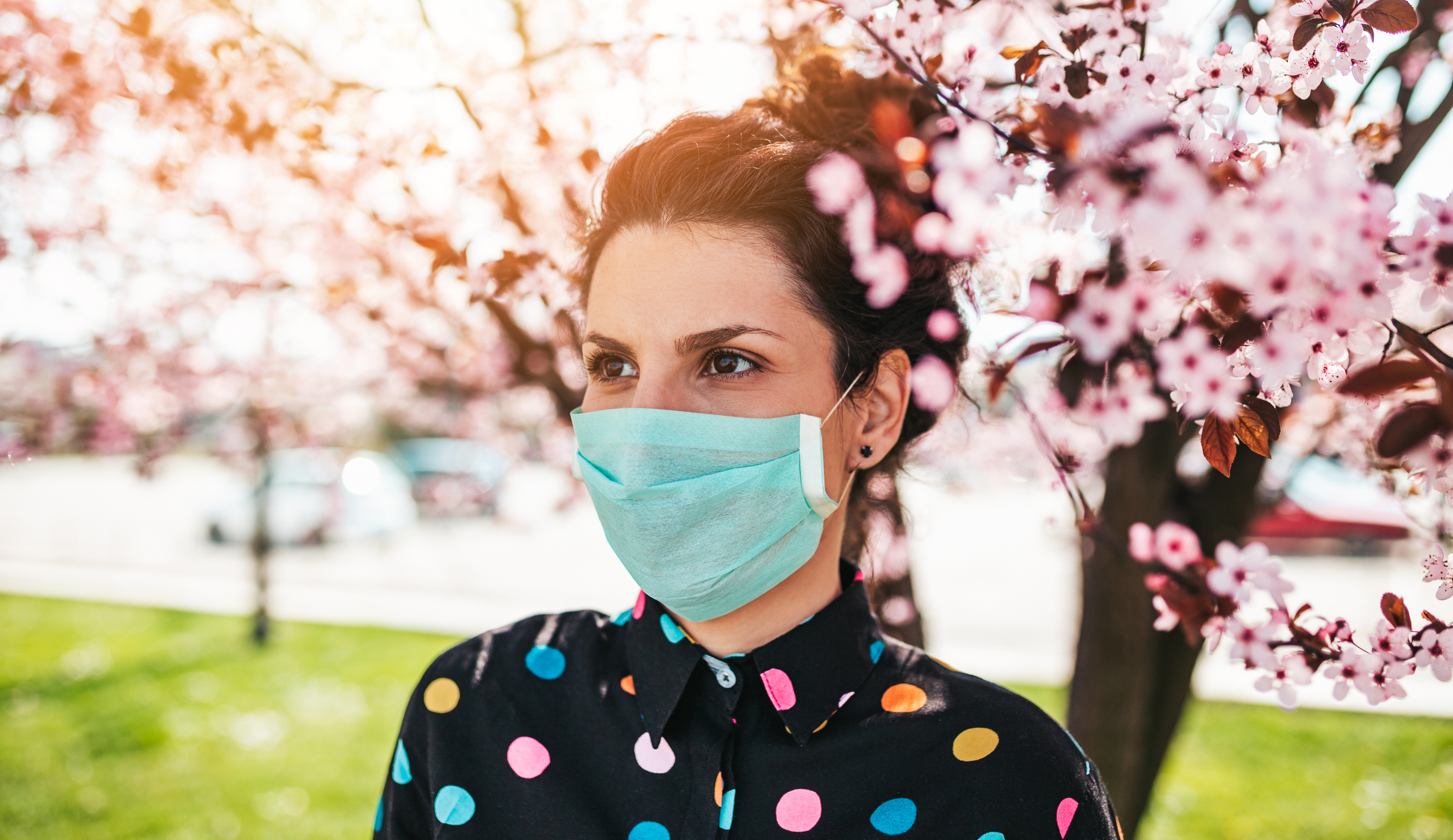Covid-19 Story Tip: Double Duty: Covid-19 Masks and Seasonal Allergies
03/10/2021

A mask can help decrease the symptoms of seasonal allergies, says Sandra Y. Lin, M.D., a professor of otolaryngology and clinical vice director of the Johns Hopkins University School of Medicine’s Department of Otolaryngology–Head and Neck Surgery.
She says a study published in the December Journal of Allergy and Clinical Immunology found that during a two-week period last spring, nurses with allergy symptoms had improvement in their nasal allergy symptoms after wearing a surgical or N95 mask.
Masks filter out particles, including allergens, says Lin, who is an allergy and sinusitis expert. Most pollens, which are the primary cause of seasonal allergies, are 10–100 micrometers in size (a human hair is approximately 70 micrometers; a grain of fine beach sand, approximately 90 micrometers). Standard surgical masks, the pleated, usually light blue variety typically worn by health care personnel, will filter out anything larger than 3 micrometers, Lin says.
Cloth masks will offer some filtration of allergen particles, so they can also be of benefit, Lin says, but she adds that they likely would be somewhat less effective than a surgical mask.
Lin says that for people with pollen allergies who spend a lot of time outdoors in allergy season, masks can be especially helpful in alleviating their symptoms — as long as they provide enough filtration to block the pollen allergen particles.
Lin is available for interviews.